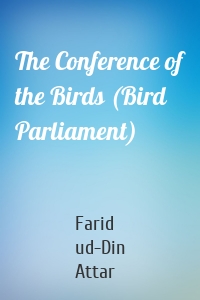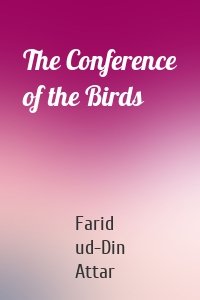Farid ud-Din Attar
3 кн.
The Conference of the Birds (Bird P...
Farid ud-Din Attar (1145/46 – 1221) was a Persian poet, druggist, and social theorist of Sufism, who wrote much of his poetry while treating hundreds of patients a day with his herbal remedies. As a young man he made a pilgrimage to Mecca, and sought wisdom during his travels in Egypt, Damascus and India. His masterpiece, «The Conference of the Birds», has survived centuries because of its captivating poetic style and its symbolic exploration on the true nature of God. This 4500-line poem...
| Автор | Farid ud-Din Attar |
The Conference of the Birds
Farid ud-Din Attar was a Persian poet, druggist, and social theorist of Sufism, who wrote much of his poetry while treating hundreds of patients a day with his herbal remedies. As a young man he made a pilgrimage to Mecca, and sought wisdom during his travels in Egypt, Damascus, and India. His masterpiece, “The Conference of the Birds”, has survived centuries because of its captivating poetic style and its symbolic exploration on the true nature of God. This 4500-line poem follows the birds of...
| Автор | Farid ud-Din Attar |
Die Konferenz der Vögel
Das persische Versepos des Dichterfürsten Farud Du-Din Attar aus dem 12. Jahrhundert erzählt eine poetische und religionsphilosophische Geschichte: Unter dem Vorsitz des Wiedehopfs – der auch im Koran und in Goethes «Westöstlichem Divan» vorkommt – entschließt sich die Versammlung der Vögel, ihren legendären König, den Wundervogel Simurgh, im Qaf-Gebirge aufzusuchen. Auf der beschwerlichen Reise durch das Tal der Suche, der Liebe, der Erkenntnis, der Unabhängigkeit, der Einheit, des Erstaunens...
| Автор | Farid ud-Din Attar |




